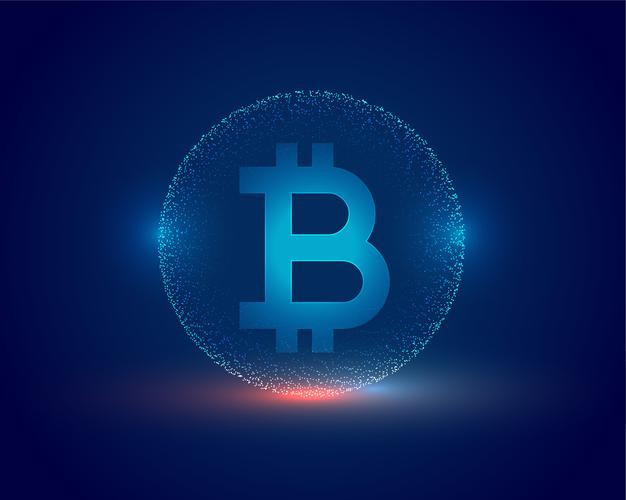
Bitcoin is a decentralized digital currency that records transactions in a distributed ledger called a Blockchain. Bitcoin is the most successful out of a great number of attempts to create virtual money through cryptography. Bitcoin has inspired the inception of other kinds of cryptocurrencies. It remains, for the entirety of the past decade, the largest cryptocurrency by market capitalization at $1.01tn.
Decentralization of Bitcoin

Bitcoin was originally envisioned as a “democratic” system of processing transactions, and a way to effectively prevent financial power from getting too concentrated in the hands of some institutions (for example, banks and government). As opposed to central transactions, where certain institutions are the ones allowed to control the flow of transactions, Bitcoin transactions – as a decentralized system – are sent, checked, and cleared by the Bitcoin system.
Certain unconnected anonymous checkers all over the world are the ones to check and verify transactions. In this way, power is widely distributed all over the Bitcoin system – and not just concentrated on a single institution. When verifying a transaction, a miner must make sure the sender is the rightful owner of the Bitcoin. A transaction is only completed when it is added to the public ledger, called Blockchain. A Bitcoin Blockchain is a technology that decentralizes Bitcoin transactions by distributing them across the system. Other cryptocurrencies, like Litecoin and Ethereum, have also adopted this ground-breaking technology.
How Does Decentralization Work on Bitcoin?

Decentralization on Bitcoin is dependent on some of the features in the system. The integrity of transactions is upheld through very secure encryption. When miners verify transactions and add them to the Bitcoin Blockchain, they are rewarded with a newly-created Bitcoin. This, consequently, means that the processing of transactions is not centralized. Rather, individuals compete for the right to verify and add transactions on the Blockchain – They do so through “proof of work”. This ensures the accuracy of the Blockchain.
The miner who successfully solves the complicated math problems – which often requires tremendous computing power – is the one who eventually “wins” the right to add the block (a new transaction) to the Blockchain. The miner could be anyone across the globe. To further illustrate Bitcoin decentralization, if a miner fails or chooses not to add a verified transaction to the Blockchain, he is swiftly replaced by a willing member (or user).
Why Decentralization is Effective

When a third party is involved in a transaction, problems might arise when his interests cease to align with those of the user. By separating some of the power of central decision-making authority into various interdependent factions, the problem of diverging goals, as mentioned earlier, can be solved.
For example, a central decision-making authority, such as the government, might decide to inflate its currency to increase revenue. This, most definitely, will not align with the interest of the citizens. Now, by distributing the decision-making power among the citizens, it becomes harder for any powerful institution to introduce any drastic change into the system – thus, decentralizing decision-making power.
Bitcoin, being open-source software, can be improved effectively by a large consensus of users. The collective power of the users can also enhance the security of the system. In contrast to this, a decision-maker in a centralized system can make alterations to the system with little – or sometimes no – consideration for the interests of the members of the system.
Problems Associated with Bitcoin Decentralization

Decentralization of Bitcoin can introduce potential problems, which could be harder to resolve than it is in a centralized institution. The democratic nature of Bitcoin often results in outcomes that are less efficient than their supposed outcome.
In a decentralized system like Bitcoin, for a great change to occur, every member of the system essentially has to vote for the change made to the operating software to be implemented. The members (or users) will only accept those Blockchains or websites like bitcoinupapp.com, that have the software features they like. For example, if a group of miners works on a new feature in the software and accepts it, but a larger group of miners disapproves of its implementation, then the feature will not be adopted, and the work of the miners will be effectively ignored. With a complicated system like this, solutions are often compromised.
Also, in a decentralized system, it is much harder to enforce accountability than it is in a centralized system, especially when fraud occurs. For example, in the judiciary system, when a crime is committed, there is a centralized institution that convicts a criminal and effectively enforces the law. In other words, since decision-making is centralized, verdicts are easily reached, therefore, enhancing accountability.
Also, if a centralized institution, like the bank, mismanages funds or transactions, they can be sued and fined because there is a central decision-maker that can be held accountable. By contrast, in a decentralized system, power and decision-making authority are evenly distributed within the system. That is, everyone has equal power in the system. In cases like this, not only is it challenging to attribute responsibility for misdeeds but determining the choice of penalties can be herculean because there is no centralized body of law. Sometimes, to ensure that a system keeps running smoothly, there must be a decision-maker – a leader – that oversees the maintenance and improvement of the system, unlike a system without a decision-maker.
Conclusively, a decentralized system, like Bitcoin, that is run and extremely secured by a great number of computers all over the globe guarantees its availability. Indeed, Bitcoin has achieved over 99.8% uptime (percentage of a system’s availability) since its inception and 100% uptime over the past eight years. Failure of a computer does not affect the overall network in any way.
The continuous rise of Bitcoin and other cryptocurrencies shows that the market demand for these products keeps increasing. However, the long-term viability of a decentralized system is up in the air. While the decentralized nature of Bitcoin “democratizes” payment, and effectively distributes the decision-making power across the system, the obvious absence of a decision-making authority sometimes compromises accountability and innovation.












